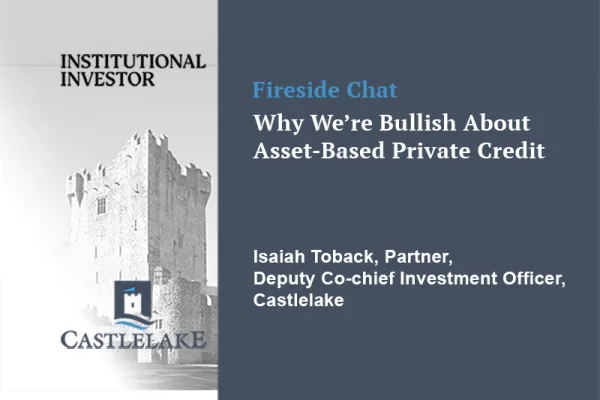The firm that real estate investor and philanthropist Sam Zell founded to manage his wealth, Equity Group Investments, is part family office, part private equity firm. Equity Group manages the Zell family investments, alongside a foundation that the next generation of family members use for their philanthropic activities.
Zell is known as the father of the Real Estate Investment Trust, and for scooping up bargains. “When everyone is going left, look right,” he famously opined, and two years after his death at the age of 81, the team in charge of his capital is continuing that legacy.
At the helm of Equity Group is Mark Sotir, who for almost 19 years runs the firm’s investments in his role of president. The family influences who sits on the board and on the investment committee, but when it comes to the day-to-day, Sotir and the investment team call the shots.
Sotir said that when he first got hired for the job, Zell told him, “I don’t need you today. I need you when I’m gone.” And in the years between Zell winding down his own involvement and now, the team had its training wheels on. This meant that when the time came, the path forward was very clear: Everybody simply did what they were supposed to do, and the succession plan fell neatly into place.
This allowed for the continuation of the system that Equity Group has long implemented: Investing alongside a close group of outside investors, also largely families, with a roughly 70-30 ratio of Zell family capital to outside assets.
The firm tries to thread the needle between family office and private equity, largely because there is so much more family capital available currently. “Everybody’s trying to get into the investing world, and they do a pretty good job until they get to direct investing, but then they realize it’s freaking hard,” he said. “We have been able to partner with a lot of family offices where instead of them building the infrastructure to do the direct investing themselves, they partner with us.”
This approach is not simply club investing, Sotir said, pointing out that this approach often leads to several CEO types all pulling in different directions — a “nightmare,” as he called it. So instead of other firms coming in to invest alongside EGI, they invest behind it. This does not mean that the other investors lose the ability to talk to owners or management, just that Equity Group manages and controls the process so that “there are not four PE firms sitting at the table trying to direct the company,” Sotir said.
Sotir and the team can therefore take a slightly different approach to their direct investment strategy without the need to appease others. Instead of following the traditional private equity model, they look to find business opportunities that they can scale four to six times, ignoring industry or company size specifics. A traditional family office might hold the company for many years or decades, but EGI does not do that either. Instead, the team looks to hold the company for a length of time somewhere in the middle of the two and waits for the returns to become really significant.
“By the time we get to a multiple of 2 or 2.5 times earnings, we’ve just got the business running, we have the right management, the right direction, the right strategy, and we’ve de-risked it,” Sotir said. “And then everybody else wants to sell. So why not go to 3, 4, or 5 times earnings? Usually, it’s a similar strategy and direction; you just have to play it out and it can be easier than the first doubling and not that much more work.”
The firm focuses on growth through add-ons and making sure that the businesses are generating as much cash as possible. This compounds tax benefits, allowing families to hold on to assets for longer before selling and realizing their gains.
Sotir also knows that sometimes he can make mistakes — and if assets are not performing early on, he just gets rid of them. There is no chance of “hanging in there just on the off chance that it is going to turn itself around and do better; it is just not worth it.”
The lack of exits in traditional PE has little impact on the strategy. It is well documented that despite the slowdown, good quality assets are still selling well — and that is what Equity Group has: companies that are doing well. Growth is of course harder in the current environment, with tariffs and valuation mismatches having an impact on prices. But the ability to hold on to an asset and allow it to grow helps navigate this storm to an extent, Sotir said.
Finding cash cow targets is a skill. Generally, the opportunities that Equity Group sees are in family-owned businesses that need outside capital and expertise to help reach the next level. “These are not companies that are in the PE circuit; they are founder-built businesses with 50- or 60-year-old CEOs starting to think whether they want the business forever or not and who have their entire net worth tied up in one company,” said Sotir.
These founders are loyal to their staff and processes and don’t like the idea of selling to a firm that is going to resell as quickly as possible, he said. Selling a majority stake to an investor like Equity Group might thread that needle.






